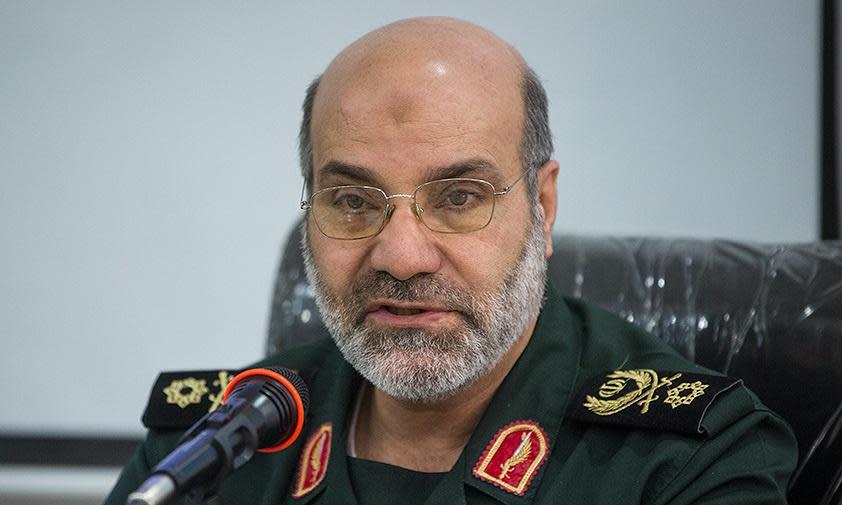Mohammad Reza Zahedi: who was the Iranian commander killed in an Israeli strike in Syria?

Israeli strikes on Iran’s consulate in Syria have left at least 11 people dead – among them Brig Gen Mohammad Reza Zahedi, the highest-ranking Iranian military official to be killed since the January 2020 assassination of Gen Qassem Suleimani in Baghdad.
Zahedi was a senior commander in al-Quds force, the Islamic Revolutionary Guards Corps’ (IRGC) clandestine foreign intelligence and paramilitary wing. He commanded units in Lebanon and Syria and was most likely a critical figure in Tehran’s relationship with Hezbollah and Syria’s president, Bashar al-Assad.
Related: Iran vows revenge after two generals killed in Israeli strike on Syria consulate
Gen Mohammad Hadi Haji Rahimi, Zahedi’s deputy and the deputy of coordination of al-Quds was also killed in the airstrikes, along with at least five other IRGC advisers.
Al-Quds force, which relies on networks of people across the Middle East to operate, now faces challenges in its operations. Saeid Golkar, an assistant professor of political science at the University of Tennessee, said Zahedi’s death was the IRGC’s “most significant loss since the assassination of Qassem Suleimani”.
“The IRGC is still reliant on one man and his networks. It cannot function independently of them,” said Golkar.
“When you eliminate a key figure within the hierarchy, coupled with the death of Zahedi’s deputy, it triggers institutional disarray. Finding a successor to Zahedi, particularly amid the crisis in the Middle East, will now be a time-consuming endeavour,” Golkar said.
Zahedi, better known among IRGC foot soldiers as Hasan Mahdavi, joined the elite military force two years after the 1979 Islamic revolution, which brought the clerical establishment to power.
He received his initial command position during the Iran-Iraq war, when he led a small brigade of soldiers. After the war, Zahedi was promoted to lead a larger headquarters primarily focused on training military students.
In 2005, he attained his first high-ranking position when the supreme leader, Ali Khamenei, appointed him as the commander of the IRGC’s ground forces. A few years ago, he trained Iranian forces on methods to quell anti-regime protests on the outskirts of Tehran.
After establishing a close relationship with Suleimani, who commanded the IRGC’s Quds Force before his death, Zahedi began regularly meeting with Hassan Nasrallah, the secretary general of the Lebanese Hezbollah militant group.
Zahedi became pivotal in the supply of Iranian-made missiles to Hezbollah and had sanctions imposed on him by the US.
In contrast to previous similar attacks, Iran promptly confirmed Zahedi’s death on Monday and pledged to retaliate. Zahedi’s son has urged Iran not to let his father’s death go “unanswered”.
Iran’s ambassador to Syria, Hossein Akbari, said Iran’s response to the strike would be “at the same magnitude and harshness”.
The foreign ministers of Iran and Syria also pointed fingers at Israel for orchestrating the attack.
“Iran will retaliate, but a major war between the two countries is unlikely,” said Golkar. “The IRGC would likely target certain positions somewhere like Erbil in Iraq or the Republic of Azerbaijan.”
• Guardian Newsroom: The unfolding crisis in the Middle East
On Tuesday 30 April, 7-8.15pm GMT, join Devika Bhat, Peter Beaumont, Emma Graham-Harrison and Ghaith Abdul-Ahad as they discuss the fast-developing crisis in the Middle East. Book tickets here or at theguardian.live


